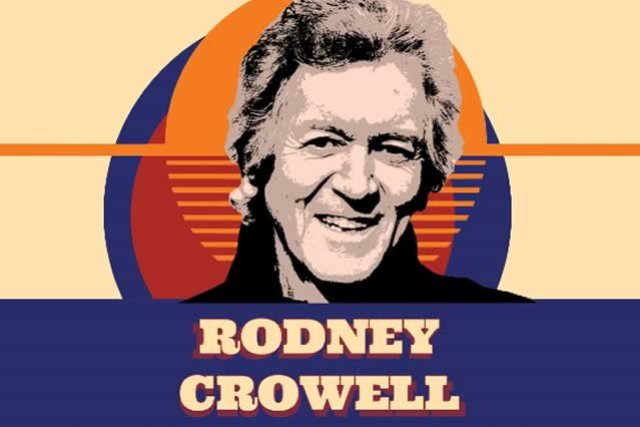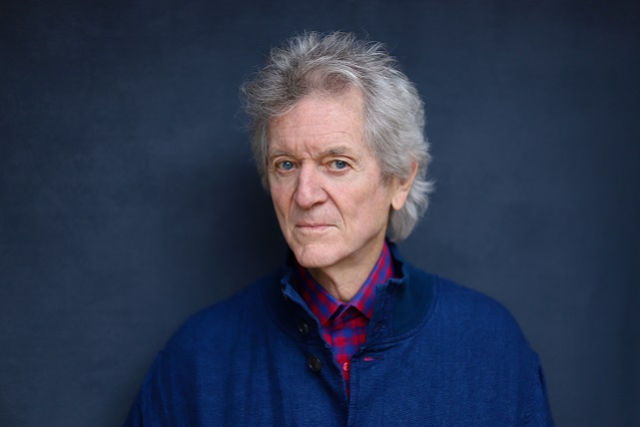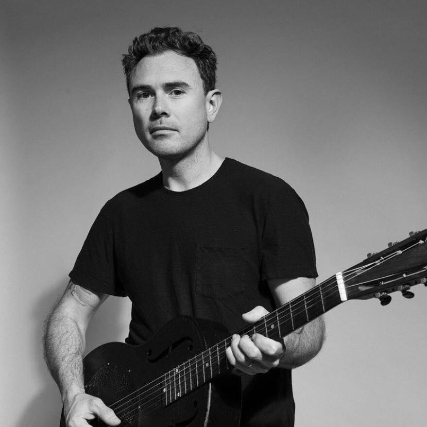
Rodney Crowell: The Chicago Sessions Tour
Show Dates are Subject to Change
Wednesday
Nov 8th
8:00 pm
PST
6:00 pm Doors
Online Tickets $45.00
SHOW DATES ARE SUBJECT TO CHANGE
Take a look at the cover of Rodney Crowell’s brilliant new album, The Chicago Sessions, and you might recognize a familiar callback to the legendary songwriter’s 1978 debut.
“In a lot of ways, this album feels like that very first record to me,” Crowell reflects. “When my daughter Chelsea suggested we lay the artwork out similarly, the connection made perfect sense. There’s something very simple, very innocent about it. It’s just me and the band in a room together, loose and live and having fun.”
Produced by Wilco’s Jeff Tweedy, The Chicago Sessions is indeed a throwback to Crowell’s early days of making records, but it’s no nostalgia trip. The songs are vital and timely, touching on everything from love and mortality to race and religion, and the performances are nothing short of intoxicating, fueled by raw guitars, honky-tonk piano, and tight, punchy drums. Tweedy wields a light touch as a producer, his influence subtle yet unmistakable, and engineer Tom Schick’s mixes are dynamic and alive, alternately lush and spacious in all the right places with a spotlight fixed firmly on Crowell’s warm, weathered vocals throughout. Put it all together and you’ve got a masterful, cross-generational collaboration that manages to feel both fresh and familiar all at once, an incisive, engaging collection that balances careful craftsmanship with joyful liberation at every turn.
“I’ve produced quite a few of my own records over the years,” Crowell explains, “but I think I’m a better performer when someone else is wearing that hat. I feel so much more relaxed and present when all I need to do is play and sing, and Jeff’s studio was like a playground for us to let go and lose ourselves in the songs.”
For Crowell, it’s always been about the songs. Born and raised in Texas, the two-time GRAMMY Award-winner moved to Nashville in the early 1970s, coming to prominence first as a writer before establishing himself as a critically acclaimed solo artist in his own right. With fifteen number one hits under his belt and tracks recorded by everyone from Emmylou Harris and Johnny Cash to Waylon Jennings and Willie Nelson, it would be difficult to overstate Crowell’s impact on country and roots music over the past five decades. In 2003, he was inducted into the Nashville Songwriters Hall of Fame; in 2006 he received the Lifetime Achievement Award in Songwriting from the Americana Music Association; in 2017, he was honored with ASCAP’s prestigious Founder’s Award; and in 2019, he was presented with the Academy of Country Music’s Poet’s Award. In addition to his prolific output as a singer, songwriter, and producer, Crowell also found time to become a celebrated author, too, publishing his memoir, Chinaberry Streets, and a lyrical retrospective, Word For Word, to widespread praise. Along the way, NPR declared him the “literarily inclined elder statesman of the Americana scene,” while Rolling Stone hailed him as a “country music trailblazer,” and the New York Times proclaimed that his songwriting “gets better and sharper with age.”
Take a look at the cover of Rodney Crowell’s brilliant new album, The Chicago Sessions, and you might recognize a familiar callback to the legendary songwriter’s 1978 debut.
“In a lot of ways, this album feels like that very first record to me,” Crowell reflects. “When my daughter Chelsea suggested we lay the artwork out similarly, the connection made perfect sense. There’s something very simple, very innocent about it. It’s just me and the band in a room together, loose and live and having fun.”
Produced by Wilco’s Jeff Tweedy, The Chicago Sessions is indeed a throwback to Crowell’s early days of making records, but it’s no nostalgia trip. The songs are vital and timely, touching on everything from love and mortality to race and religion, and the performances are nothing short of intoxicating, fueled by raw guitars, honky-tonk piano, and tight, punchy drums. Tweedy wields a light touch as a producer, his influence subtle yet unmistakable, and engineer Tom Schick’s mixes are dynamic and alive, alternately lush and spacious in all the right places with a spotlight fixed firmly on Crowell’s warm, weathered vocals throughout. Put it all together and you’ve got a masterful, cross-generational collaboration that manages to feel both fresh and familiar all at once, an incisive, engaging collection that balances careful craftsmanship with joyful liberation at every turn.
“I’ve produced quite a few of my own records over the years,” Crowell explains, “but I think I’m a better performer when someone else is wearing that hat. I feel so much more relaxed and present when all I need to do is play and sing, and Jeff’s studio was like a playground for us to let go and lose ourselves in the songs.”
For Crowell, it’s always been about the songs. Born and raised in Texas, the two-time GRAMMY Award-winner moved to Nashville in the early 1970s, coming to prominence first as a writer before establishing himself as a critically acclaimed solo artist in his own right. With fifteen number one hits under his belt and tracks recorded by everyone from Emmylou Harris and Johnny Cash to Waylon Jennings and Willie Nelson, it would be difficult to overstate Crowell’s impact on country and roots music over the past five decades. In 2003, he was inducted into the Nashville Songwriters Hall of Fame; in 2006 he received the Lifetime Achievement Award in Songwriting from the Americana Music Association; in 2017, he was honored with ASCAP’s prestigious Founder’s Award; and in 2019, he was presented with the Academy of Country Music’s Poet’s Award. In addition to his prolific output as a singer, songwriter, and producer, Crowell also found time to become a celebrated author, too, publishing his memoir, Chinaberry Streets, and a lyrical retrospective, Word For Word, to widespread praise. Along the way, NPR declared him the “literarily inclined elder statesman of the Americana scene,” while Rolling Stone hailed him as a “country music trailblazer,” and the New York Times proclaimed that his songwriting “gets better and sharper with age.”

Rodney Crowell
Country
Born and raised in Texas, two-time GRAMMY-winner Rodney Crowell arrived in Nashville in the early 1970s, coming to prominence first as a writer before establishing himself as a critically acclaimed solo artist in his own right. With 15 number one hits under his belt and tracks recorded by everyone from Emmylou Harris and Johnny Cash to Waylon Jennings and Willie Nelson, it would be difficult to overstate Crowell’s impact on roots music over the past five decades. In 2003, he was inducted into the Nashville Songwriters Hall of Fame; in 2006 he received the Lifetime Achievement Award in Songwriting from the Americana Music Association; in 2017, he was honored with ASCAP’s prestigious Founder’s Award; and in 2019, he was presented with the Academy of Country Music’s Poet’s Award. In addition to his prolific output as an artist and producer, Crowell also found time to become a celebrated author, too, publishing a memoir and a lyrical retrospective to widespread praise. Along the way, NPR declared him the “literarily inclined elder statesman of the Americana scene,” while Rolling Stone hailed him as a “country music trailblazer,” and the New York Times proclaimed that his songwriting “gets better and sharper with age.”
Produced by Jeff Tweedy, Crowell’s brilliant new album, The Chicago Sessions, is as incisive, engaging, and vital as ever, touching on everything from love and mortality to race and religion as it balances careful craftsmanship with joyful liberation at every turn.
Produced by Jeff Tweedy, Crowell’s brilliant new album, The Chicago Sessions, is as incisive, engaging, and vital as ever, touching on everything from love and mortality to race and religion as it balances careful craftsmanship with joyful liberation at every turn.

Jedd Hughes
Rock
Jedd Hughes describes life with transcendental precision: a sleepless night in Modesto; a childhood on the edge of the sprawling Australian desert; an old friend whose wit is still razor-sharp, finally at peace. Listening to Hughes, you don’t just picture a place or a person. You experience them.
It makes sense, then, that Hughes’s technicolor world has often felt too formidable for three verses and a chorus. He couldn’t settle for making music that was anything but all of him, and so we waited––waited on the kid legends befriended and believed in––to find a way to capture the smoky stories and sounds that danced and beckoned to him, just out of focus.